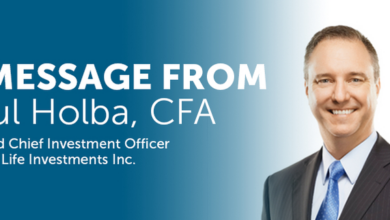Health insurance coverage by industry: Crucial 2025 Guide

Why Health Insurance Coverage Varies So Dramatically Across Industries
Alt text: A stethoscope resting on health insurance documents, symbolizing the complexities of coverage.
Image metadata:
- Title: Health Insurance Coverage Variations in Florida
- Description: An image symbolizing the financial and medical aspects of health insurance, relevant to Florida’s diverse industries.
- Geo-tag: Florida, USA
Health insurance coverage by industry shows striking differences that directly impact Florida businesses and their employees. Understanding these variations is crucial for making informed decisions about your workforce’s health benefits.
Quick Answer for Florida Business Owners:
- Restaurants & Personal Services: 35-38% drop coverage annually due to thin margins
- Professional Services: Higher premiums but lower dropout rates (better retention)
- Construction & Real Estate: Face unique risks with specialized coverage needs
- Healthcare Services: Most sensitive to cost increases despite being in the health sector
- Government Workers: Best coverage rates (86% employer-paid vs 80% private sector)
The data reveals that approximately 55% of U.S. workers are covered through employer-sponsored health plans, but this varies wildly by industry. In Florida, small businesses with fewer than 50 employees – which represent 27% of the private sector workforce – face the biggest challenges in providing consistent coverage.
Recent research shows that about 32% of small businesses that offered health insurance in one year stopped offering it the next year. This isn’t always a sign of business failure – 70-79% of these companies continue operating successfully for five years after dropping coverage, suggesting it’s often a strategic cost management decision.
The financial pressure is real. A 10% increase in health insurance costs can increase the probability of dropping coverage by 2.6 percentage points for the average small business. For Florida’s service-heavy economy, this creates unique challenges in industries like hospitality, construction, and professional services.
I’m Paul Schneider, and through our two independent insurance agencies in Florida, I’ve helped hundreds of businesses steer the complex landscape of health insurance coverage by industry across sectors from restaurants to professional services. My experience representing over 50 insurance companies has shown me how industry-specific factors dramatically impact both coverage options and costs for Florida employers.
Key health insurance coverage by industry vocabulary:


Alt text: Infographic showing the percentage of Florida workers with employer-sponsored health insurance and the employer/employee premium split.
Image metadata:
- Title: Florida Employer Health Insurance Coverage Infographic
- Description: Visual breakdown of employer-sponsored health insurance coverage rates and premium cost sharing in Florida.
- Geo-tag: Florida, USA
For Florida business owners, health insurance coverage by industry is a major decision and expense. Across the state, about 55% of workers get health insurance through their jobs, but the ability to offer coverage varies significantly.
Florida’s healthcare spending mirrors the national trend, with U.S. healthcare costs hitting 18.3% of GDP in 2021 and projected to reach 19.6% by 2031. This puts immense pressure on your bottom line, especially for smaller operations. Businesses with fewer than 50 employees represent a large part of Florida’s private sector but face the biggest problems in offering comprehensive Employee Benefits. Each industry, from hospitality to professional services, has unique challenges, and understanding these differences is key to making smart decisions.
Understanding Your Role: Employer vs. Employee Contributions
When it comes to premiums, who pays what? Typically, employers cover about 81% of premium costs for single coverage, with employees paying the remaining 19%. This split varies slightly by sector.
- Private Industry: The average is an 80/20 split, with employers paying 80%.
- State and Local Government: Employers cover a more generous 86% of premiums, with employees paying 14%.
- Full-time vs. Part-time: In Florida, full-time employees see employers cover 81% of premiums, while part-time workers get about 78% employer coverage.
How Firm Size Affects Health Coverage Offers
The size of your business dramatically affects your ability to offer health coverage. The numbers tell a clear story:
- Large Businesses (1,000+ employees): 99.6% offered health benefits in 2019.
- Medium Businesses (100-999 employees): 96.5% offered benefits.
- Small Businesses (25-99 employees): The rate drops to 76.3%.
- Micro Businesses (<10 employees): Only 23% offered health benefits.
This creates a significant challenge for Florida’s small business sector. Large corporations can negotiate better rates and spread costs, while smaller firms struggle with both cost and complexity. The numbers in Florida are particularly tough: from 2018-2020, only 41.7% of private-sector employees in firms with fewer than 50 employees had access to employer-sponsored health insurance, which is lower than the national average of 49.5%.
This disparity means a higher percentage of employees in small businesses end up uninsured. It’s not just about money; it’s about administrative burden and negotiating power. That’s why many Florida small businesses seek experienced agents to find solutions that fit their industry and budget.
A Deep Dive into Health Insurance Coverage by Industry
Alt text: Chart illustrating health insurance premium burdens for Florida industries such as restaurants, real estate, and healthcare.
Image metadata:
- Title: Florida Industry Health Insurance Premium Burden Chart
- Description: Comparison of health insurance premium burdens across key Florida industries.
- Geo-tag: Florida, USA
Digging into health insurance coverage by industry reveals a complex picture. Each sector faces unique challenges, from high discontinuation rates to varying sensitivity to premium growth. In Florida’s diverse economy, the payroll burden of health insurance can determine a business’s ability to offer coverage. Many businesses are drawn to Group Health Insurance solutions, but the path to sustainable coverage looks different for every industry.
High-Turnover Sectors: Restaurants, Retail, and Personal Services
Florida’s hospitality and service economy struggles with high employee turnover and some of the highest health insurance discontinuation rates. In 2019, about 38% of restaurants and personal services firms stopped offering health insurance from one year to the next. These rates remained high post-pandemic, hovering around 26-27% from 2022 to 2023.
Dropping coverage is often a strategic cost management decision, not a sign of failure. With restaurant wages in Florida jumping 37% from 2018 to 2023, rising insurance premiums can become unsustainable for businesses on thin margins. These sectors are highly sensitive to cost increases; a 10% increase in health insurance costs can increase the probability of dropping coverage by 5.5 percentage points for restaurants and 5.7 for personal services.
| Industry (Florida) | Median Health Insurance Burden (2023) | Discontinuation Rate (2018-2019) | Sensitivity to 10% Cost Increase |
|---|---|---|---|
| Restaurants | 3.0% of expenses | 38% | +5.5 percentage points |
| Retail | Data varies by firm type | Varies by sector | +3.2 percentage points |
| Personal Services | Varies by firm structure | 38% | +5.7 percentage points |
Professional and Technical Services: A Different Story
Professional services—like legal, accounting, or IT firms—take a different approach. These businesses often have higher profit margins and compete for skilled talent, making them more willing to absorb insurance costs. While a 10% cost increase still raises the probability of dropping coverage by 4.5 percentage points, the strategic focus is on maintaining benefits to attract top talent. For independent contractors in this sector, understanding How Much Does Health Insurance Cost For Independent Contractors in Florida is a key part of their business plan.
Specialized Industries: Construction, Real Estate, and Healthcare
Florida’s specialized industries have unique risk factors and cost considerations.
- Construction: This industry combines high physical risks with coverage challenges. In Florida, employer firms faced a 34% discontinuation rate between 2018-2019. The project-based nature of the work makes consistent coverage difficult.
- Real Estate: This sector had the highest median health insurance payroll burden at 12.7% in 2023. While firms may have fewer employees, the cost of benefits relative to payroll is substantial.
- Healthcare Services: Ironically, this industry is highly sensitive to cost increases. A 10% rise in insurance burden increases the probability of dropping coverage by 4.7 percentage points, highlighting the tight margins even within the health sector.
These industry-specific challenges, detailed in studies like An analysis of health insurance coverage by occupation in Florida, show why one-size-fits-all insurance solutions don’t work. Each sector needs a custom approach.
The Financial Pressures: Why Florida Businesses Drop Health Coverage
Alt text: Florida small business owner looking concerned while reviewing financial documents related to health insurance costs.
Image metadata:
- Title: Florida Small Business Owner Reviewing Health Insurance Costs
- Description: A small business owner in Florida examines financial documents, considering the impact of health insurance expenses.
- Geo-tag: Florida, USA
Many Florida business owners who drop health coverage do so as a tough but necessary decision to keep their doors open. Rising health insurance costs hit small businesses hard, and discontinuing coverage isn’t always what it seems. The financial strain is real, with nearly one-quarter (24%) of small businesses dropping coverage due to increasing costs. When this happens, many employees turn to Individual Health Insurance to stay covered.
Is Dropping Coverage a Sign of Failure?
The data suggests otherwise. About 70% of nonemployer firms and 79% of employer firms continued operating successfully five years after discontinuing health insurance. This shows that dropping coverage is often a strategic cost-reduction move, not a last resort. For Florida businesses in competitive industries like restaurants, this decision can ensure survival. While it can impact morale and recruitment, it’s often a smart business decision. For example, with rising wages and thin margins, a restaurant owner might find that letting employees seek their own coverage through options like the Best Health Insurance For Independent Contractor in Florida is the only way to keep the business running.
Analyzing the Health Insurance Burden
The “health insurance burden” is the share of your expenses or payroll that goes to health premiums. For nonemployer firms in Florida, this is about 4.2% of total expenses. However, this varies by industry. Real estate firms face the highest payroll burden at 12.7%, while restaurants are at 6.1%.
Sensitivity to cost increases is a major challenge. A 10% increase in health insurance costs raises the probability of dropping coverage by 2.6 percentage points for the average small business. Some industries are hit harder:
- Healthcare services: A 4.7 percentage point increase in likelihood of dropping coverage.
- Personal services: A 5.7 percentage point increase.
These numbers show how quickly rising costs can force difficult decisions. It’s not about wanting to provide less; it’s about keeping the business alive so there are jobs to provide. The key is finding the right balance and exploring all options.
Navigating the Future: Solutions for Sustainable Coverage
Alt text: Insurance agent in Florida consulting with a small business owner about health insurance options.
Image metadata:
- Title: Florida Insurance Agent Consulting with Small Business Owner
- Description: A Florida insurance agent provides expert guidance to a small business owner on health insurance solutions.
Geo-tag: Florida, USA
The challenge of providing affordable and consistent health insurance coverage by industry is a complex one, but it’s not impossible. For Florida businesses, navigating this landscape requires a combination of smart policy interventions and innovative healthcare product solutions. The goal is to support entrepreneurship, improve employee retention, and foster overall economic growth without placing undue burdens on businesses.
Innovative Insurance Products for Small Businesses
We understand that a one-size-fits-all approach doesn’t work, especially for businesses in diverse industries across Florida. That’s why we help our clients explore modern health plan options that can help manage costs while still offering valuable benefits. These can include:
- Restrictive Networks: Plans that offer lower premiums by limiting the choice of providers to a specific network. This can be a cost-effective solution for businesses in areas like Newberry, FL, or Micco, FL, where a strong local network can meet most employee needs.
- Risk-Sharing Arrangements: While more common for larger self-insured groups, some smaller group plans might incorporate elements of risk-sharing to help manage high-cost claims.
- Voluntary Benefits: Beyond core health plans, offering voluntary benefits like Group Dental Insurance and Group Vision Insurance allows employees to customize their coverage at their own expense, adding value without increasing employer costs. Many firms also offer critical illness and long-term care insurance as voluntary options.
The Role of Policy and Tax Incentives
Government policies and tax incentives play a crucial role in making health insurance more accessible and affordable for Florida businesses.
- Small Business Health Care Tax Credit: This federal tax credit is available for certain small employers (fewer than 25 employees) who pay at least 50% of their employees’ health insurance premiums. While it has specific eligibility requirements, it can provide significant relief for qualifying Florida businesses.
- Advance Premium Tax Credits (APTC): These credits are available for individuals purchasing insurance through the Affordable Care Act (ACA) marketplaces, with expanded eligibility under the American Rescue Plan Act (ARPA) 2021 (though some expansions are set to expire at the end of 2025). While not directly for employers, these credits provide an important safety net for employees of small businesses that cannot afford to offer coverage. For 59% of small non-offering firms, health insurance marketplaces are considered ‘very important’ or ‘somewhat important’ for their employees.
The future legislative outlook for Florida businesses will continue to shape the affordability and availability of health insurance. We advocate for policies that support small business growth and ensure accessible, high-quality healthcare options for all Floridians.
Frequently Asked Questions about Health Insurance by Industry
When we talk with Florida business owners about health insurance coverage by industry, certain questions come up again and again. These concerns are real, and they deserve straightforward answers based on actual data from businesses just like yours.
What industries have the highest rates of discontinuing health insurance?
If you’re in the restaurant business, construction, or personal services here in Florida, you’re not alone in feeling the pressure. The numbers tell a clear story: restaurants lead the pack with 38% of nonemployer firms and 36% of employer firms dropping coverage between 2018 and 2019.
Personal services aren’t far behind, with 38% of nonemployer firms discontinuing coverage. Repair and maintenance businesses saw 37% of nonemployer firms and 35% of employer firms make the tough call to drop benefits. Construction companies – so vital to Florida’s growing economy – had 34% of employer firms stop offering health insurance.
These aren’t just numbers on a spreadsheet. They represent real Florida business owners making difficult decisions to keep their doors open. The good news? These trends continued even post-pandemic, which means you’re dealing with industry-wide challenges, not personal failures.
High employee turnover and thin profit margins create a perfect storm in these sectors. When your margins are already razor-thin and you’re competing for every dollar, health insurance costs can feel overwhelming.
How much of the health insurance premium do employers typically pay?
Here’s something that might surprise you: most Florida employers are already being pretty generous with their health insurance contributions. For civilian workers with single coverage, employers typically pay 81% of the premium costs. That means employees only pick up about 19% of the tab.
In private industry across Florida, that split is usually 80% employer, 20% employee. If you work for state or local government, you’re even luckier – those employers typically cover 86% of premiums, leaving employees with just 14%.
The size of your business does matter here. Larger firms generally contribute a higher percentage simply because they have more negotiating power with insurance companies. But even small Florida businesses try to hit that 80% mark when they can afford it.
Is dropping health insurance a strategic business decision?
This might be the most important question we get, and the answer might surprise you. Yes, dropping coverage is often a smart strategic move – not a sign that your business is failing.
Here’s the reality check: about 70% of nonemployer firms and 79% of employer firms that dropped health insurance coverage continued operating successfully five years later. That’s not the track record of failing businesses. That’s the track record of smart business owners making tough but necessary decisions.
When 24% of small businesses surveyed said they dropped coverage specifically due to rising costs, they weren’t giving up – they were adapting to survive and thrive. In Florida’s competitive business environment, sometimes you have to make difficult choices to stay in the game.
The key is understanding that this decision affects more than just your bottom line. You might see higher employee turnover or have trouble attracting new talent. But for many Florida businesses, especially in industries like restaurants or construction, maintaining competitiveness and ensuring long-term viability often means making strategic cuts to benefits.
It’s not an easy decision, but it’s often the right one for keeping your business healthy and your employees employed.
Securing Your Team’s Health in Florida
Alt text: Insurance agent in Florida consulting with a small business owner about health insurance options.
Image metadata:
- Title: Florida Insurance Agent Consulting with Small Business Owner
- Description: A Florida insurance agent provides expert guidance to a small business owner on health insurance solutions.
- Geo-tag: Florida, USA
After diving deep into the data, one thing becomes crystal clear: health insurance coverage by industry isn’t just about numbers on a spreadsheet. It’s about real Florida businesses making tough decisions every day to keep their doors open while taking care of their people.
Whether you’re running a busy restaurant in Miami, managing a construction crew in Tampa, or operating a professional services firm in Jacksonville, the challenges are real but not impossible. We’ve seen how restaurants face discontinuation rates as high as 38%, while professional services firms deal with higher premium burdens but lower dropout rates. Each industry has its own story, its own pressures, and its own solutions.
The good news? You don’t have to figure this out alone. Understanding the financial implications – like how a 10% cost increase can push businesses toward dropping coverage – is just the first step. The real magic happens when you find healthcare solutions that actually fit your industry’s unique needs.
Modern Employee Benefits aren’t what they used to be. Today’s options include everything from restrictive networks that keep costs manageable to voluntary benefits like dental and vision that add value without breaking your budget. The key is finding the right mix that works for your specific situation and industry challenges.
At Schneider and Associates Insurance Agencies, we’ve helped hundreds of Florida businesses steer these choppy waters. We understand that a solution for a Gainesville tech startup looks completely different from what works for a Fort Lauderdale hospitality group. That’s why we take the time to understand your industry, your workforce, and your financial reality before recommending anything.
Building a resilient and healthy workforce doesn’t have to mean choosing between your employees’ wellbeing and your business’s survival. With the right guidance and custom solutions, you can create a benefits package that attracts talent, keeps costs manageable, and supports your long-term growth.
Ready to explore what’s possible for your Florida business? Contact Schneider and Associates Insurance Agencies to find a specialized business insurance plan that fits your industry’s unique needs. Because when it comes to your team’s health, one size definitely doesn’t fit all.






